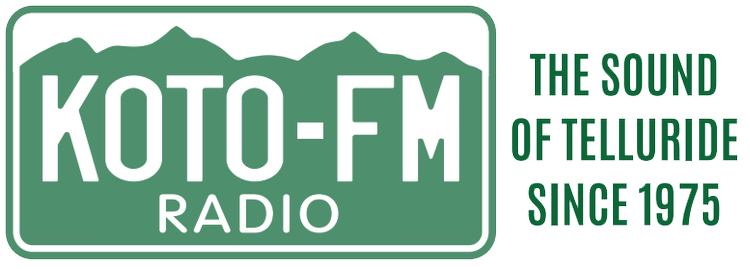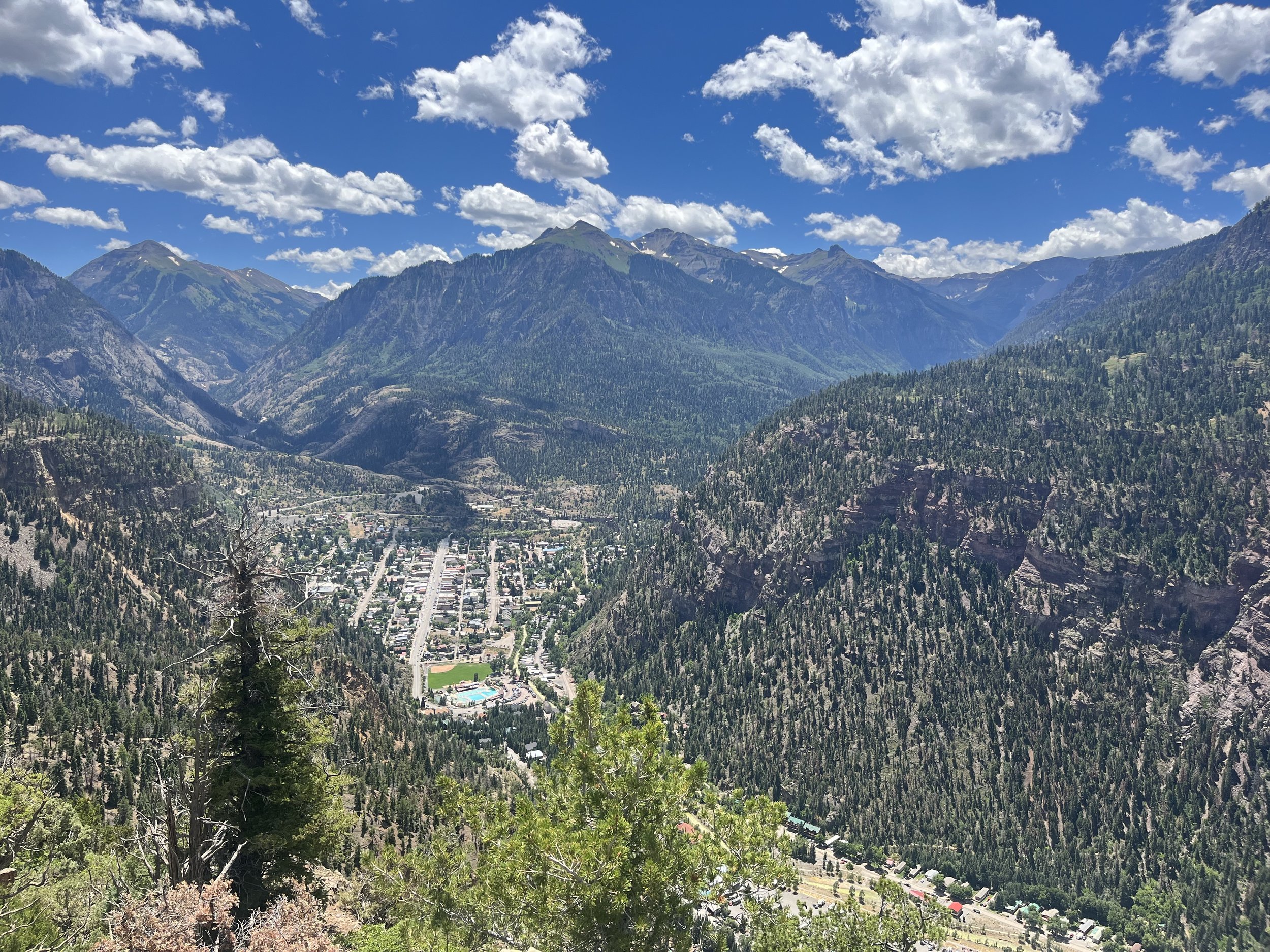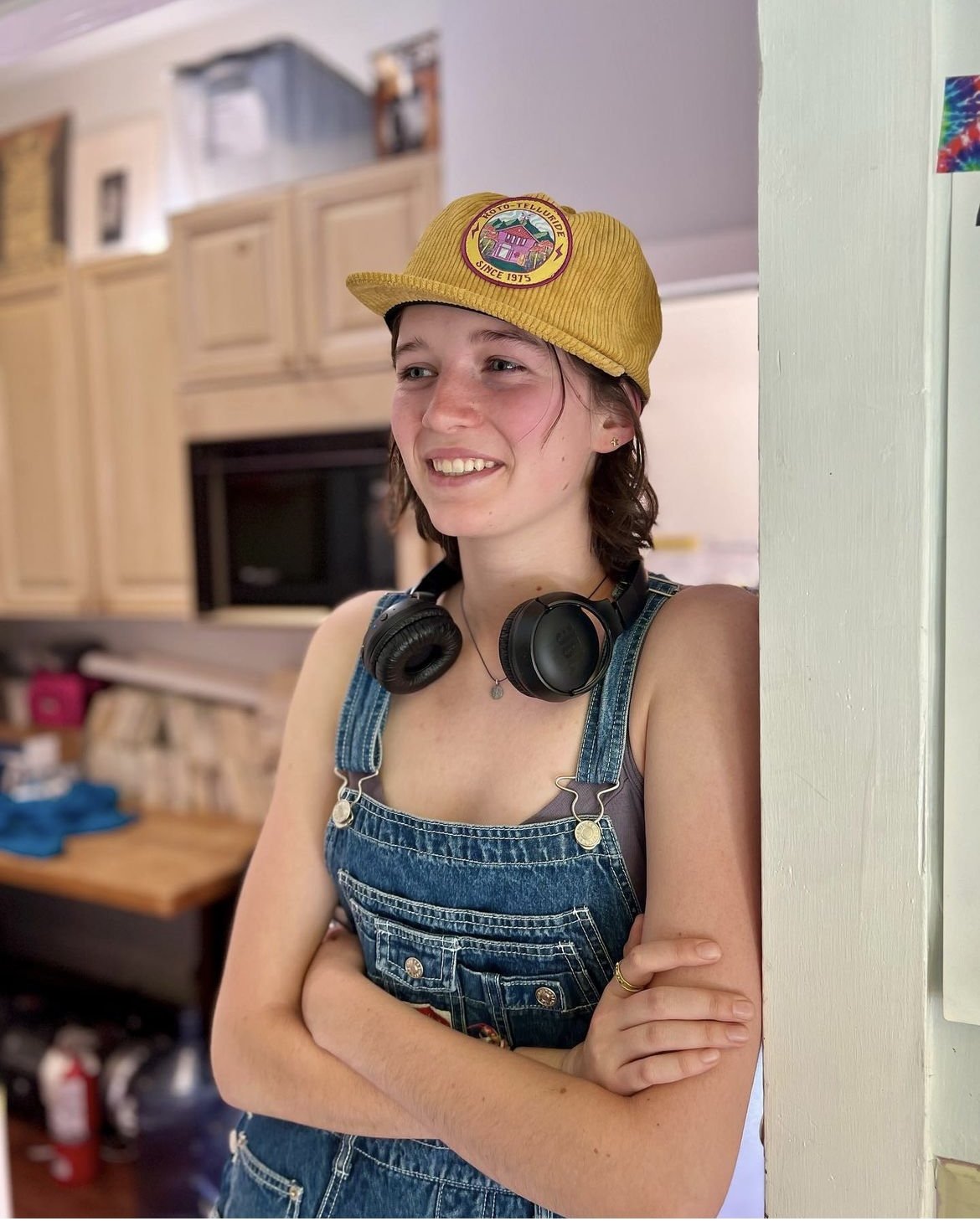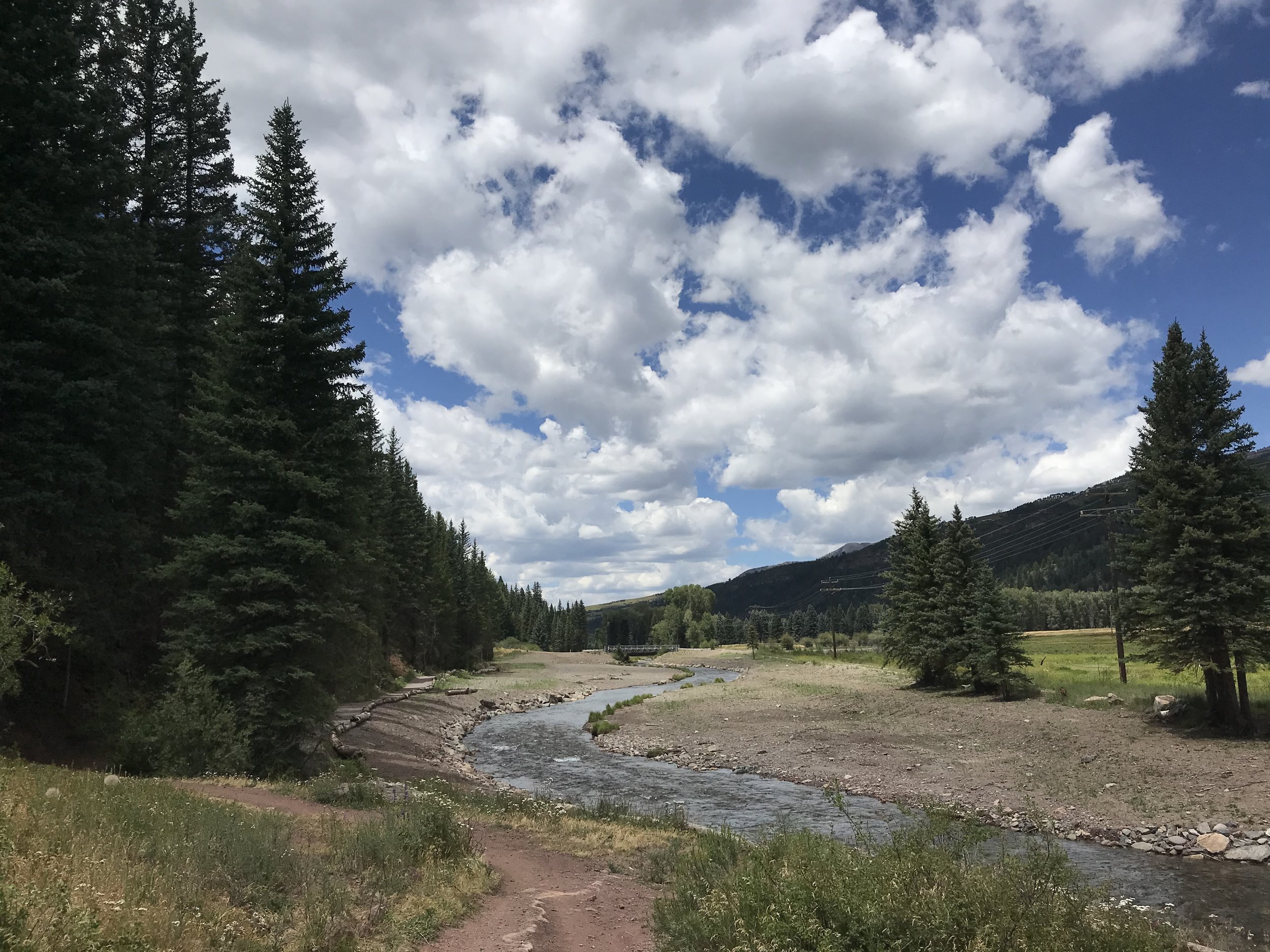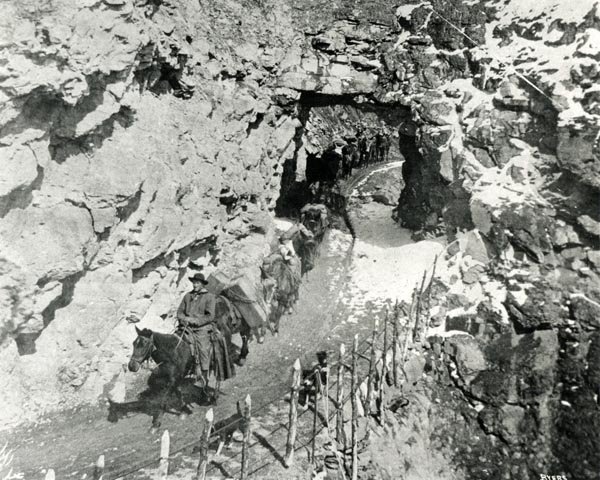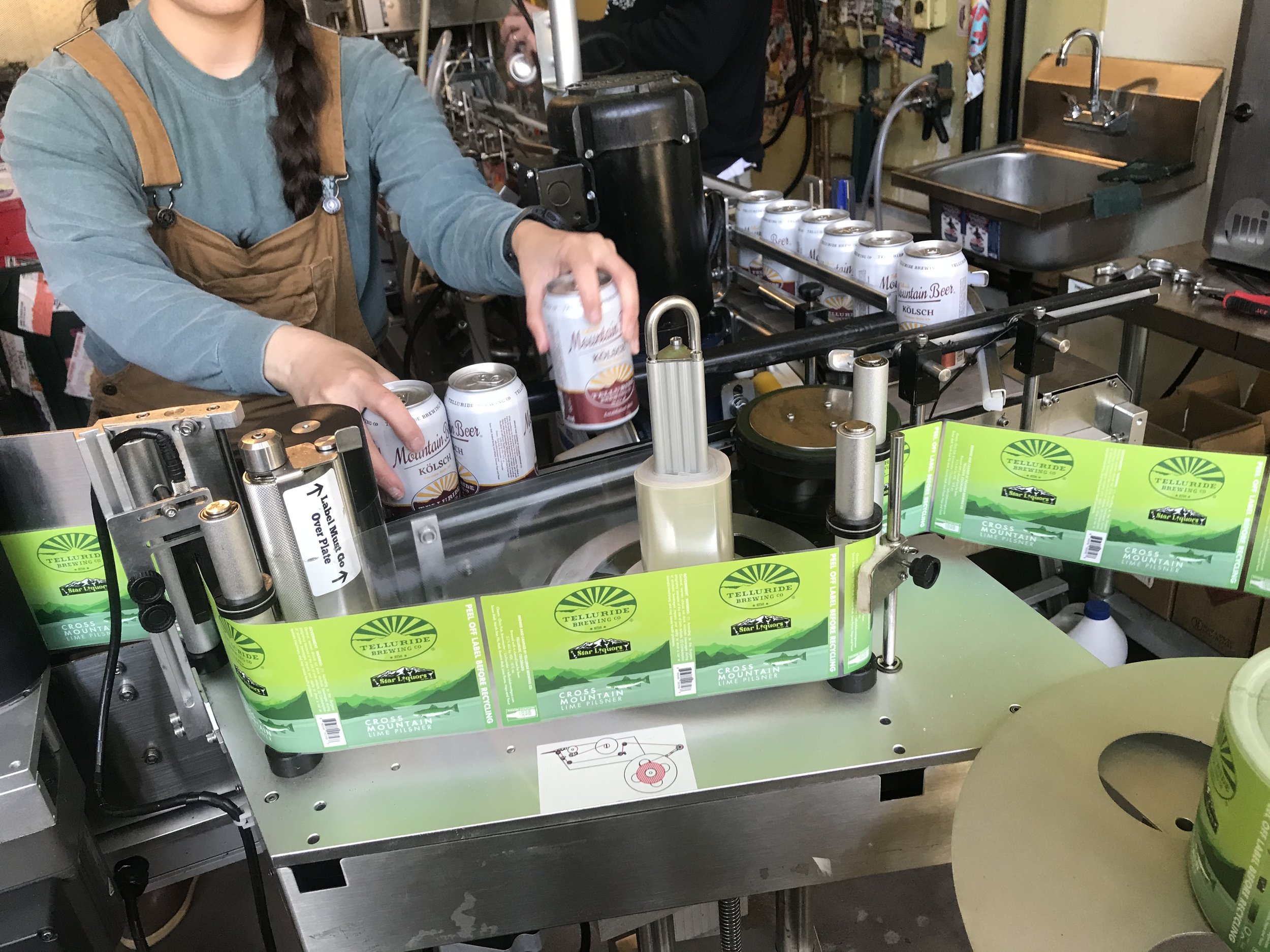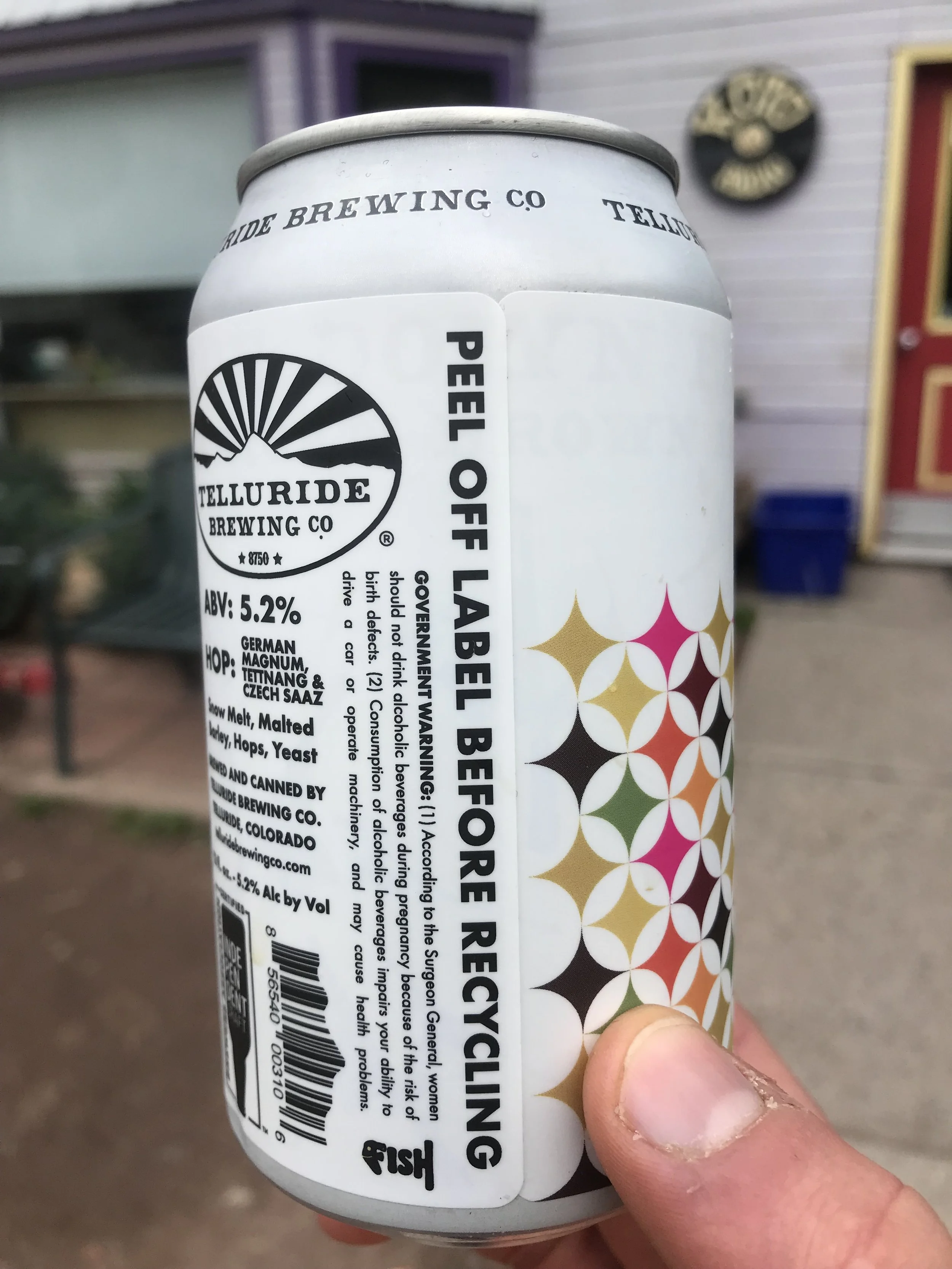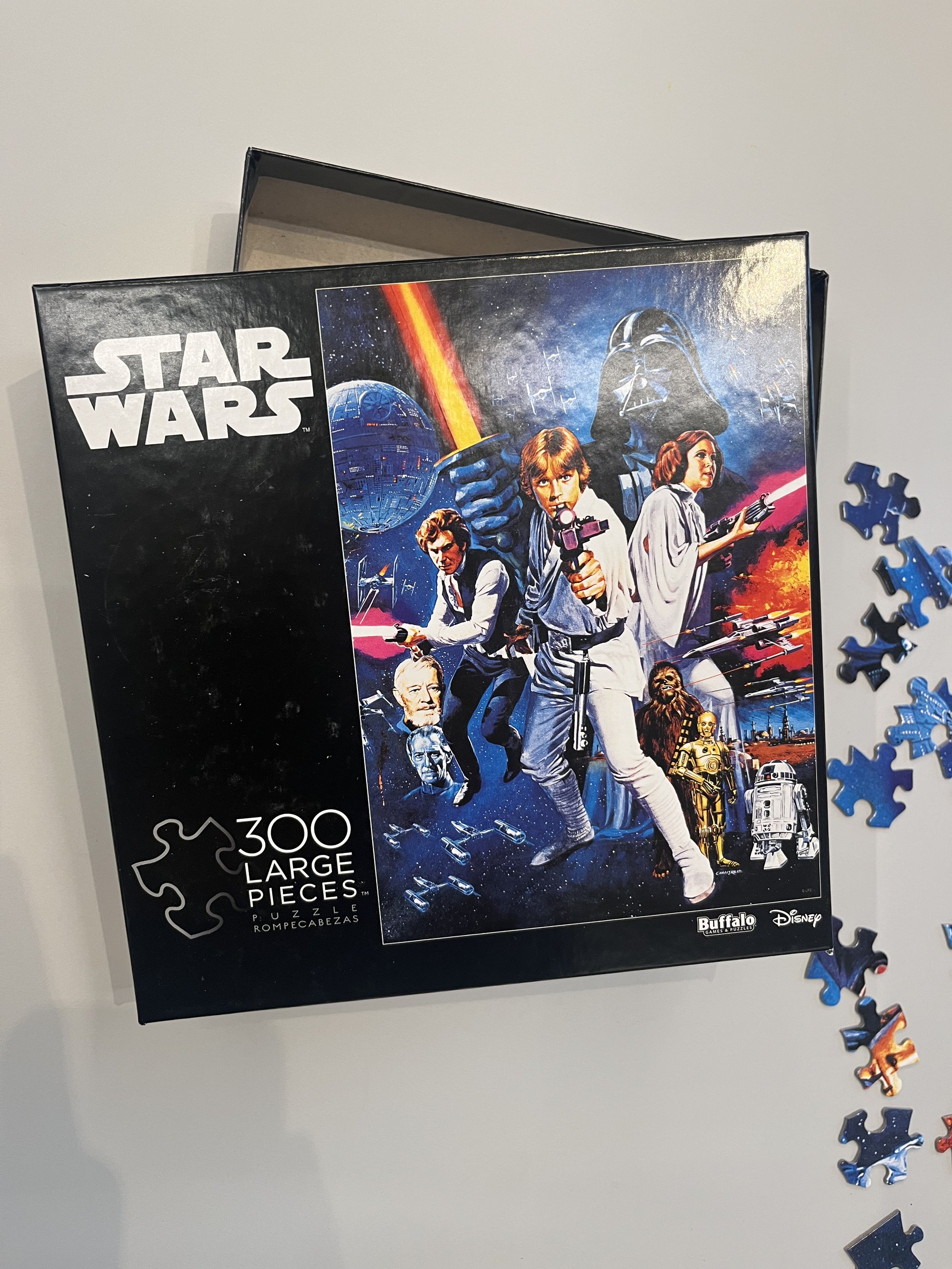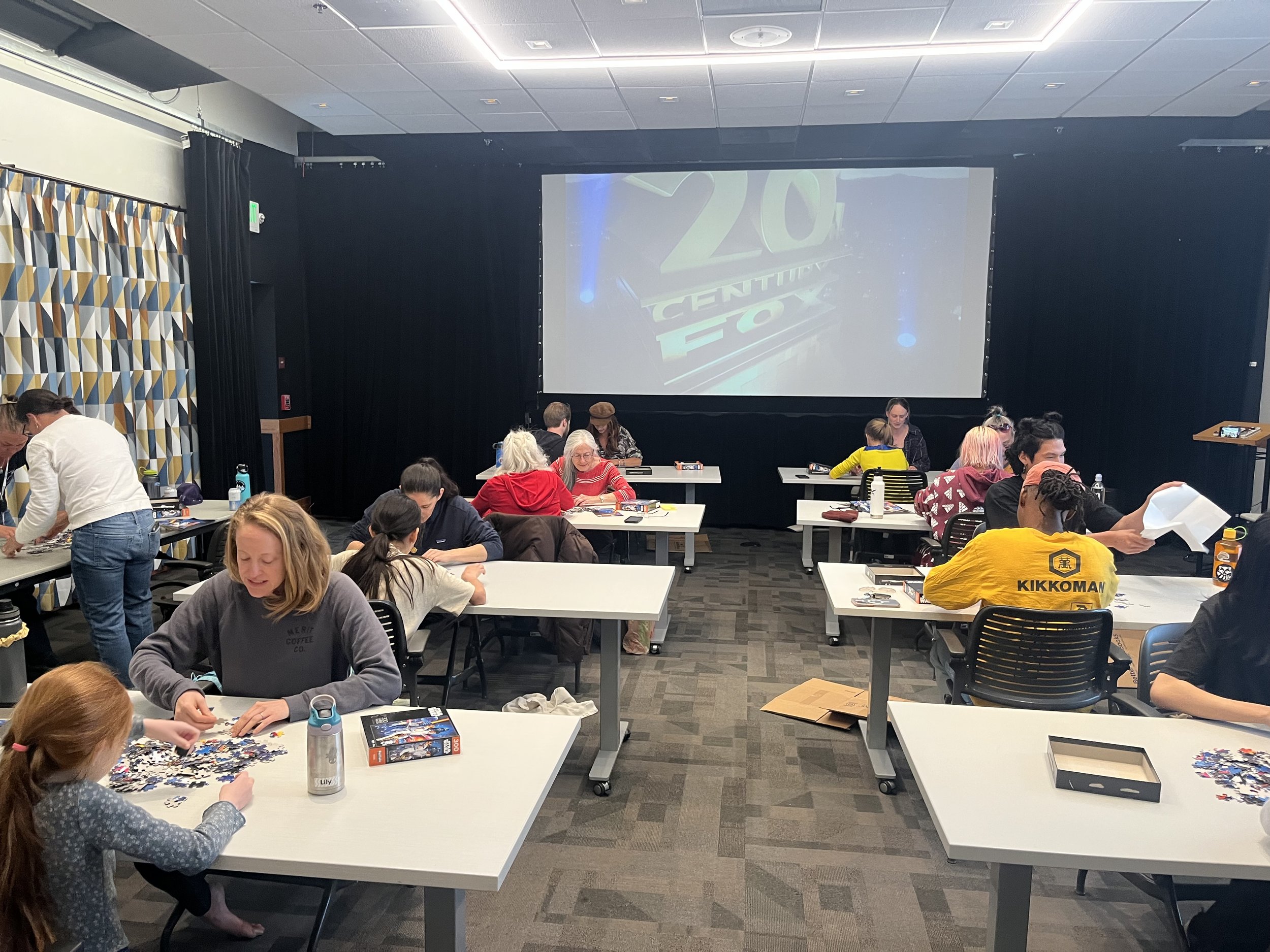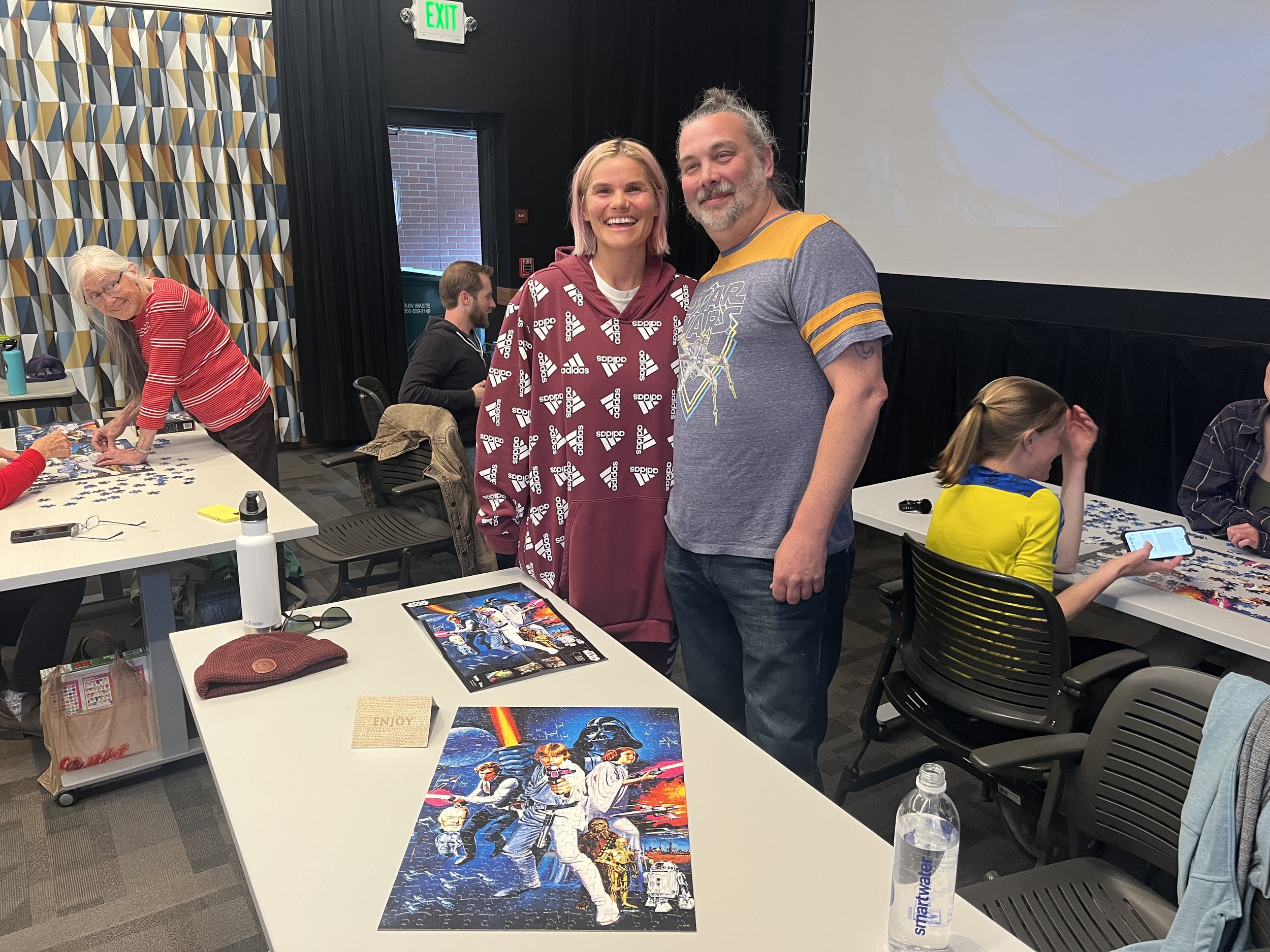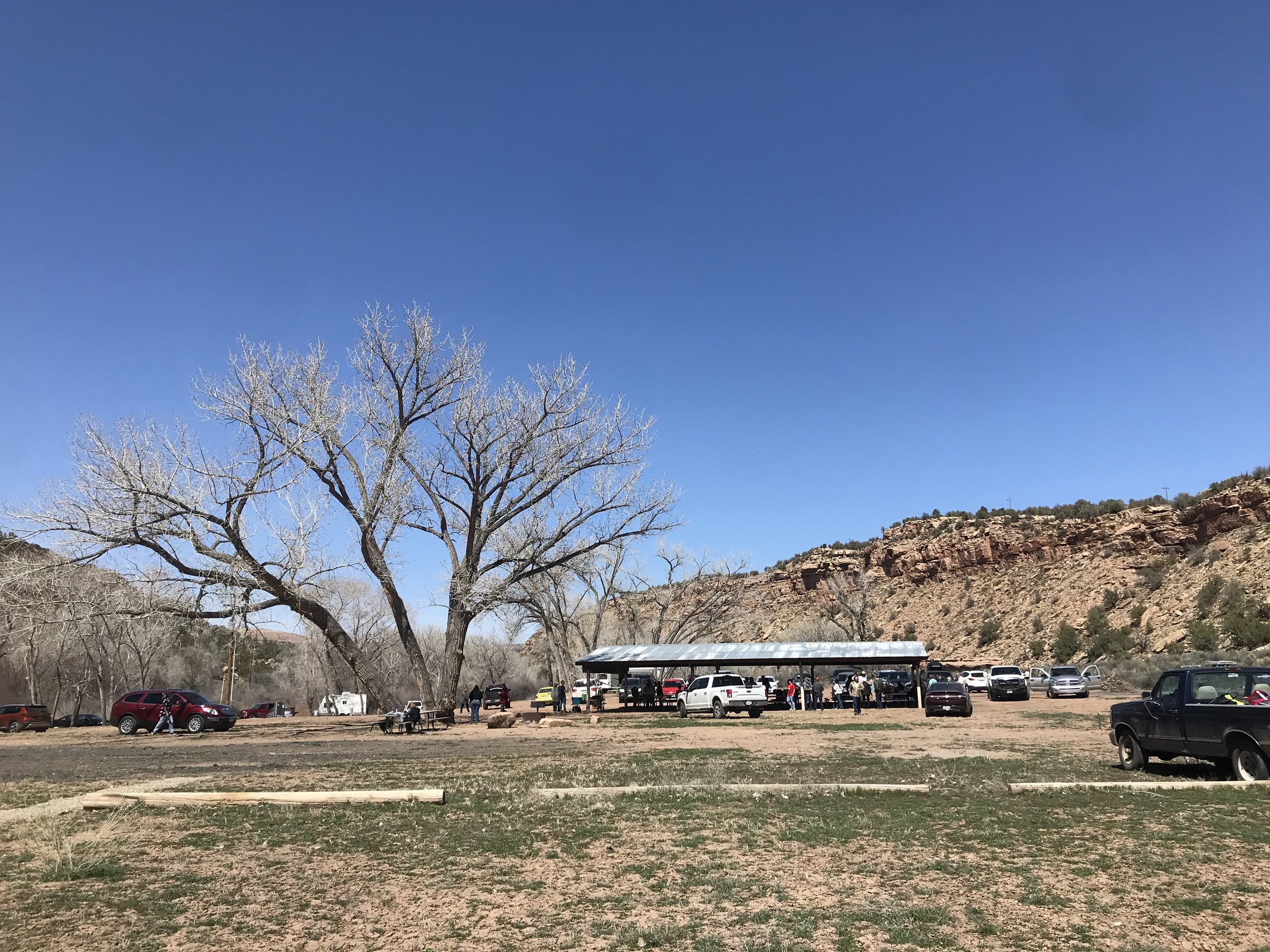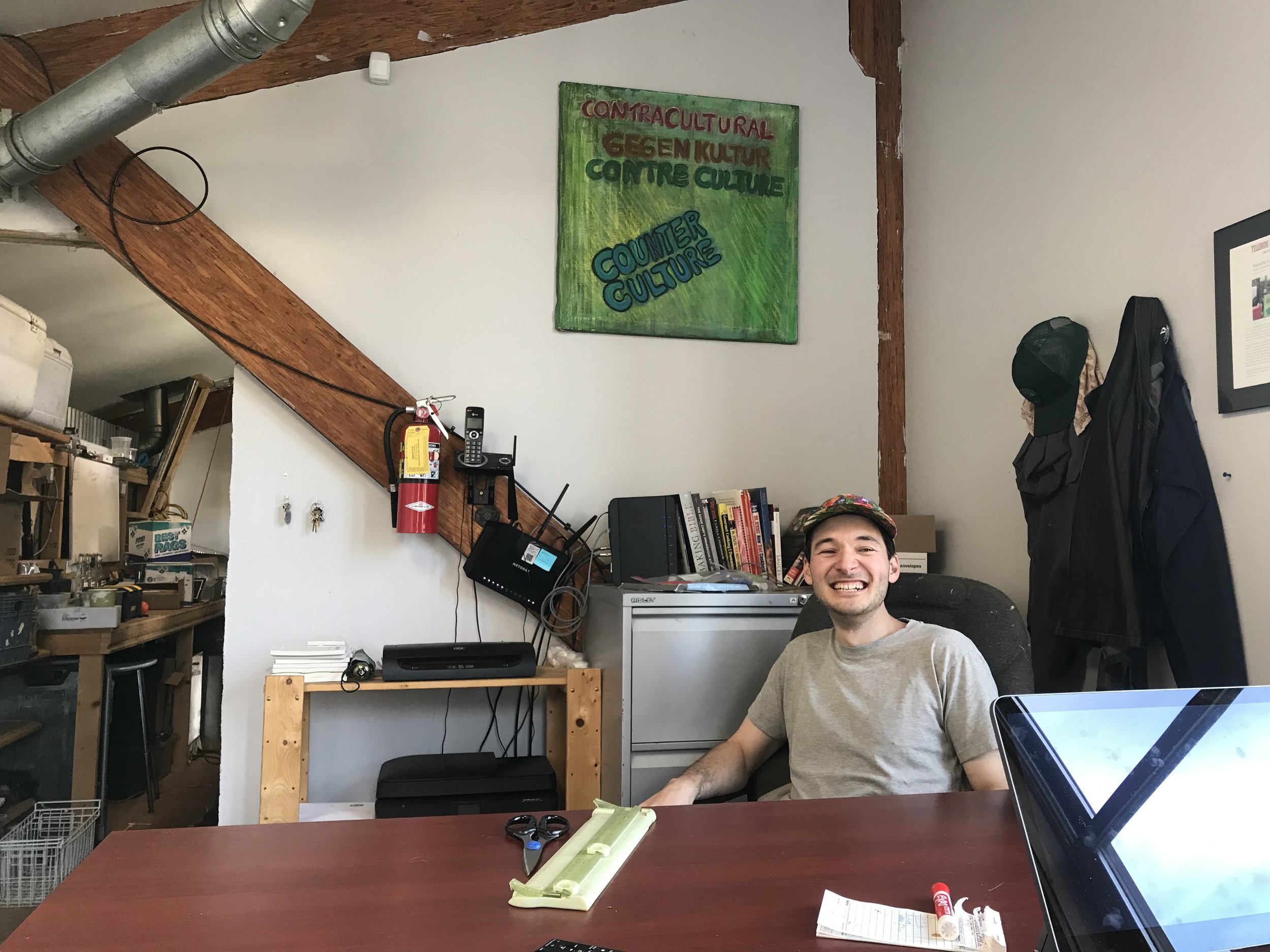It’s the first day of the Telluride Mushroom Festival, and the back porch, and back room of an art gallery on Main Street have become a shady and calming ‘Integration Space.’ And what, exactly, does that entail?
“The space came about by somebody bringing to my attention that we’ve never done something like this. And with the decriminalization of psilocybin in Colorado we felt like this was something Telluride Mushroom Fest needs to have,” says Rebecca Roberts, who works with Mushroom Fest and helped organize the space.
When Colorado voters passed Proposition 122 last fall, they decriminalized psychedelic mushrooms, and opened a pathway in the state for the medicinal use of psilocybin.
Jo Young is a social worker based in Durango who specializes in psychedelic integration work. The use of psychedelics she explains,
“Can push us into different realities or different spaces. In that space we can have realizations, we can have more understanding of our life or our connection with nature. And it can be really hard to come back to what day to day life looks like,” Young says.
As more people turn to psychedelics, the integration space provides a safe place, an atmosphere of support and discussion, or just quiet along the way.
Although this is the first designated Integration Space which the festival has offered, Roberts says discussion of psychedelics has long been one aspect of festival culture.
“The beginning days of the festival were centered around not only being able to talk about psilocybin, but also other plant entheogens. It was really science-based, and people would come from the East and West Coast to have these conversations, and they were happening really underground because in those days society just really wasn't okay with those entheogens,” she says.
The time which Roberts speaks of was the early 1980s when the festival was founded, and the US was embroiled in the War on Drugs, which criminalized the recreational, medicinal, and even scientific use of a whole collection of substances. Young continues
“But before that there was a lot of research being done on substances such as MDMA and psilocybin, and even a lot more than I'm familiar with, for treating mental health, alcoholism, or even bipolar disorder,” she says.
As the legal outlook for psychedelics is slowly and gradually reopening, there’s been a new crop of science which looks into the promising possibilities of using these substances in mental healthcare, wellbeing, and exploration. Of the current moment, says Young:
“It’s a resurgence; it’s a remembrance; it’s not a new thing,” she says. “The resurgence speaks to us starting to let in all the research that can be done and needs to be done in this space.”
Roberts says this is an exciting moment for the Mushroom Festival, which has long welcomed all aspects of mycological culture and appreciation.
“People who normally might not’ve been comfortable having their say in the conversation because of worries over where the law stands are now able to openly speak about their experiences with psychedelics. I’m looking forward to seeing how that will change the festival culture this year and how this space can play a role in that,” says Roberts.
In Young’s experience, warming up to these conversations takes time. Reflecting back on the integration space, she says many communities — in other countries or amongst indigenous peoples — have a long history of using psychedelics. It’s an accepted part of life.
“They can talk to their family members about it, they can talk with their community — wherever they’re going — whereas here it is still pretty stigmatized even though we’ve legalized it,” says Young. “So we need these places that are safe and non-judgemental in nature in order to really express what’s happening in those experiences.”
The space is free, and open to the public; no festival pass necessary. All are welcome, as Young and Roberts stress, anyone who might want to chat about these topics should stop by and say hello.
